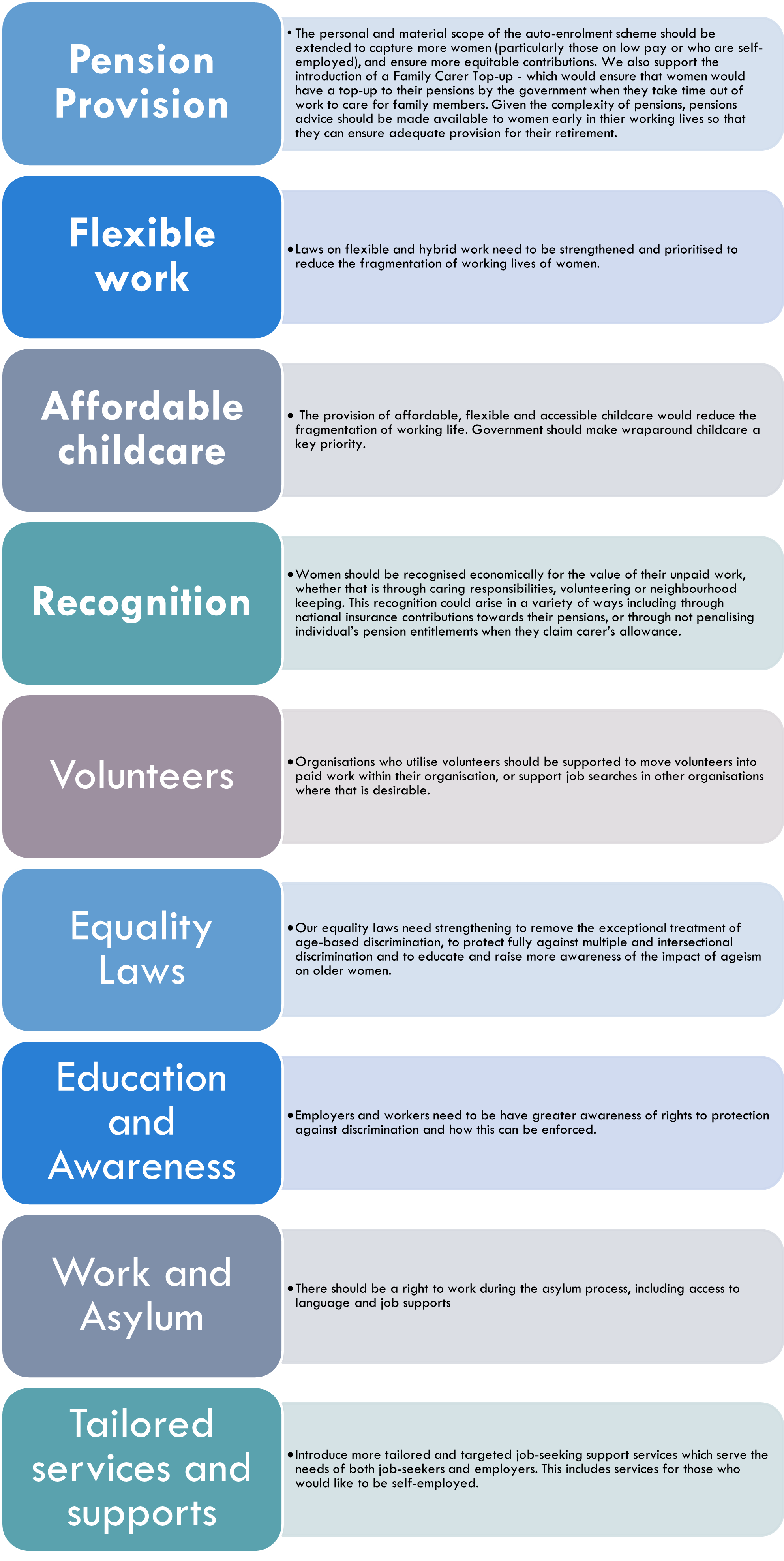Participatory
Research Themes
Overview of the Research
Substantive and publishable research is a key aspect of our work, alongside activist and aesthetic productions. The research plan and outcomes are noteworthy in the realms of aging/labour research and participatory research.
Between September 2022 and March 2023, the participatory research team co-analysed the anonymized interviews of 100 older women. The co-analysis of interviews was completed by our research team, led by the researchers from the University of Manchester and Manchester Metropolitan University and includes Advisory Group members: Atiha Chaudry, Rohina Ghafoor, Marie Greenhalgh and Tendayi Madzunzu.
First, the participatory element of the project is central to the work. The Advisory Group of 14 women represent an extremely diverse and empowered cross section of the Manchester population and have been participants in every aspect of the project, from the determination of areas to research, the questions, the recruitment of interviewees, and the analysis of data.
Second, the cross section of 100 interviews is so deeply representative of the intersectional issues faced by Manchester women that we feel the data pool is truly unique in the world of such studies. The work resulting from this research endeavour is bound to make a difference in local, perhaps national communities and among policy makers.
The research question being investigated is: “What are the inequalities facing women over 50 in relation to work and retirement?” Our research report, Uncertain Futures: 100 Women available here, highlights the key themes and recommendations of our research and is supported by a short documentary, Uncertain Futures Research Findings available here.
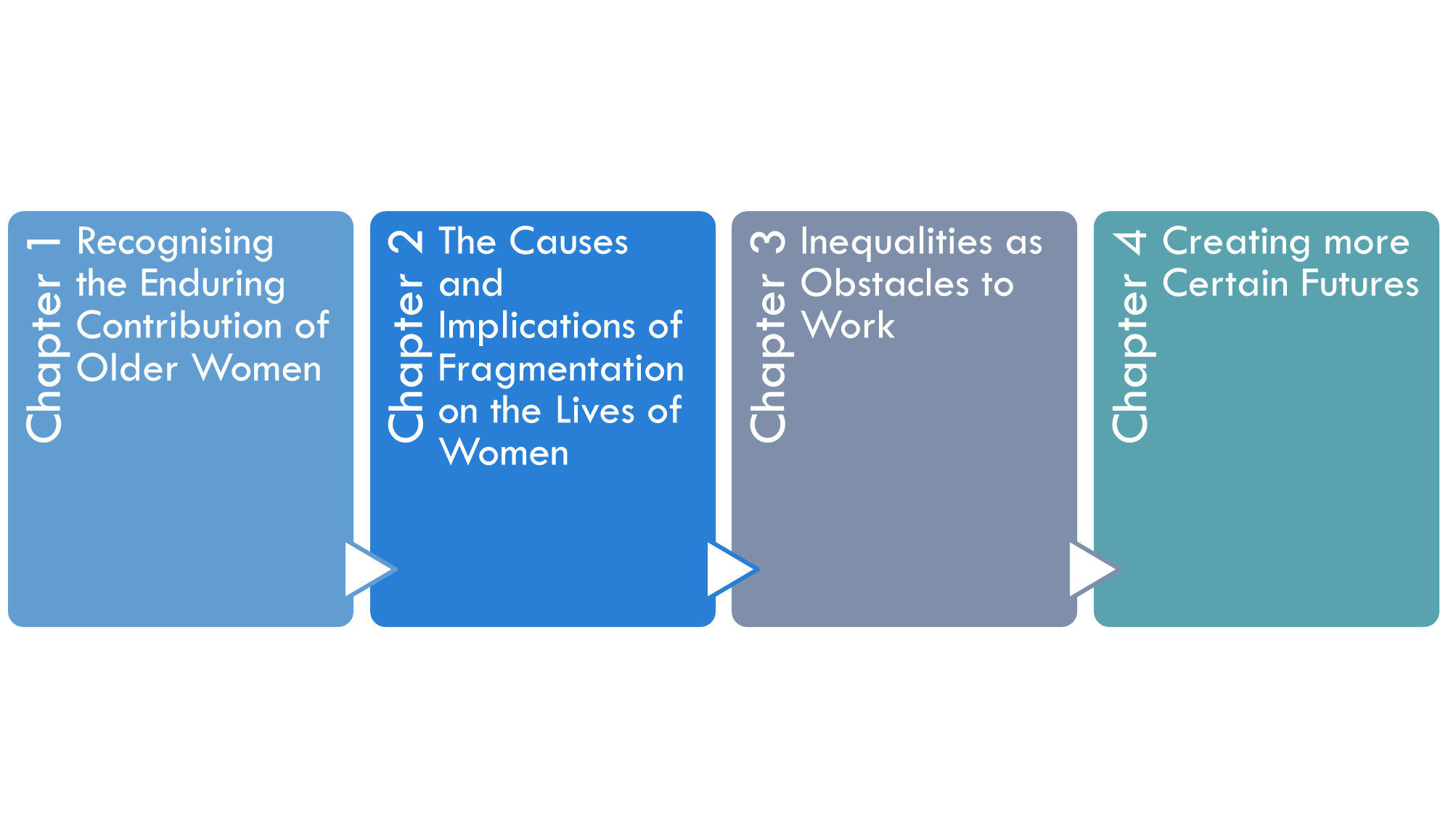
Theme 1
Recognising the Enduring Contributions of Older Women
This theme illustrates several key points from the research:
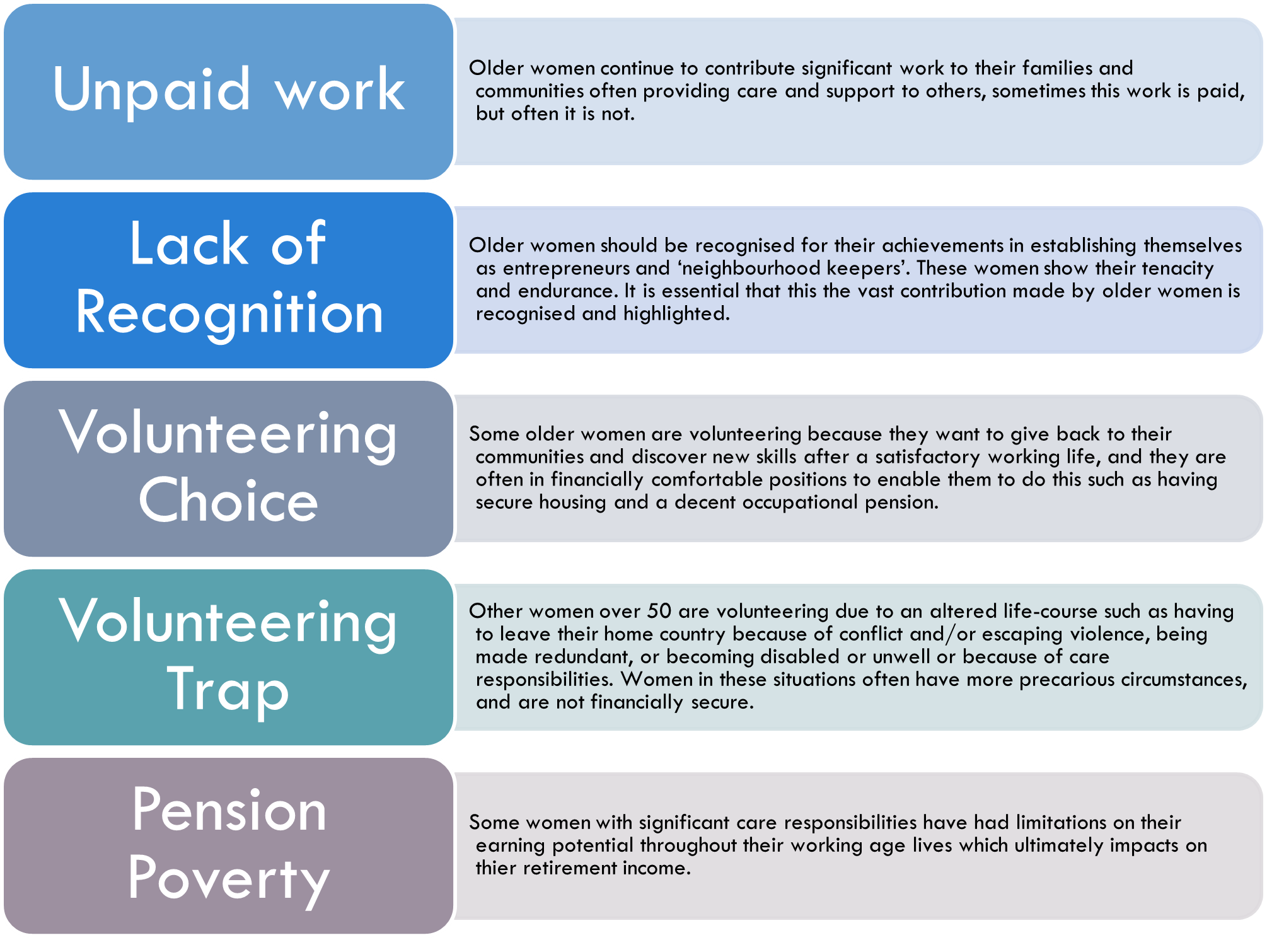
Theme 2
The Causes and Implications of Fragmentation and an altered life-course on the Lives of Women
This theme reveals the following key points:
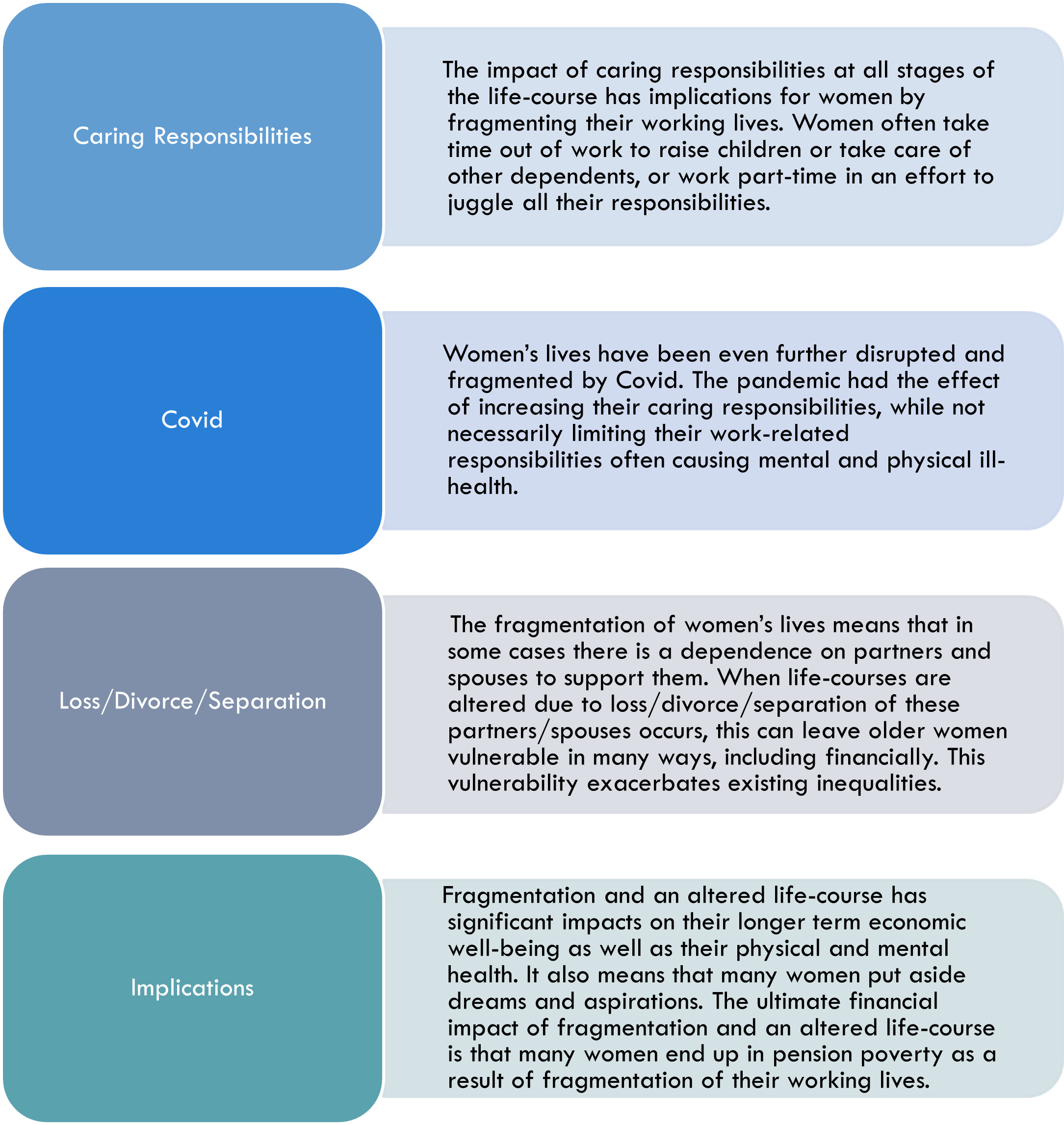
Theme 3
Inequalities as obstacles to work
This theme illustrates several key points from the research:
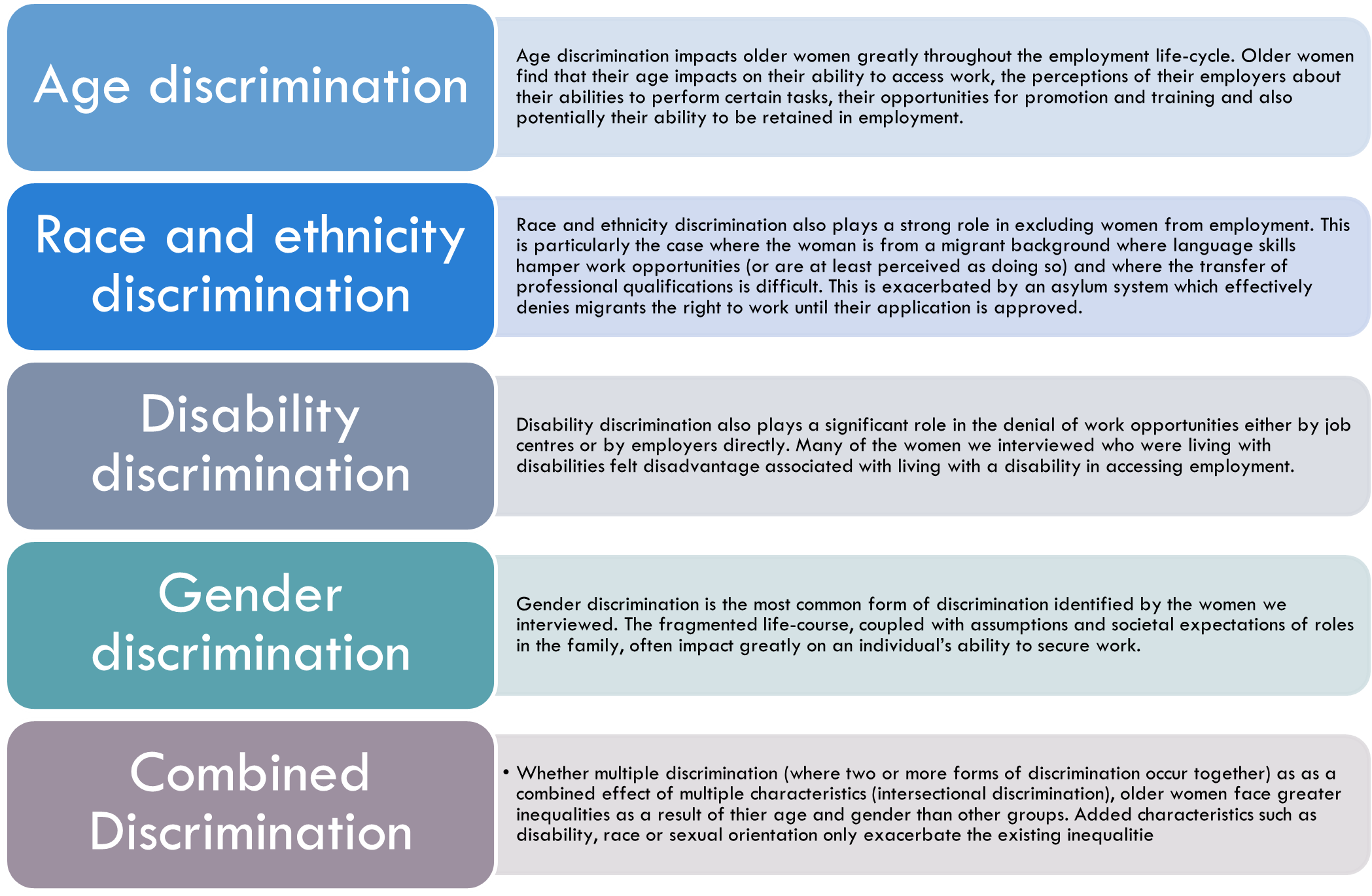
Theme 4
Creating More Certain Futures
This theme reveals several key points from the research:
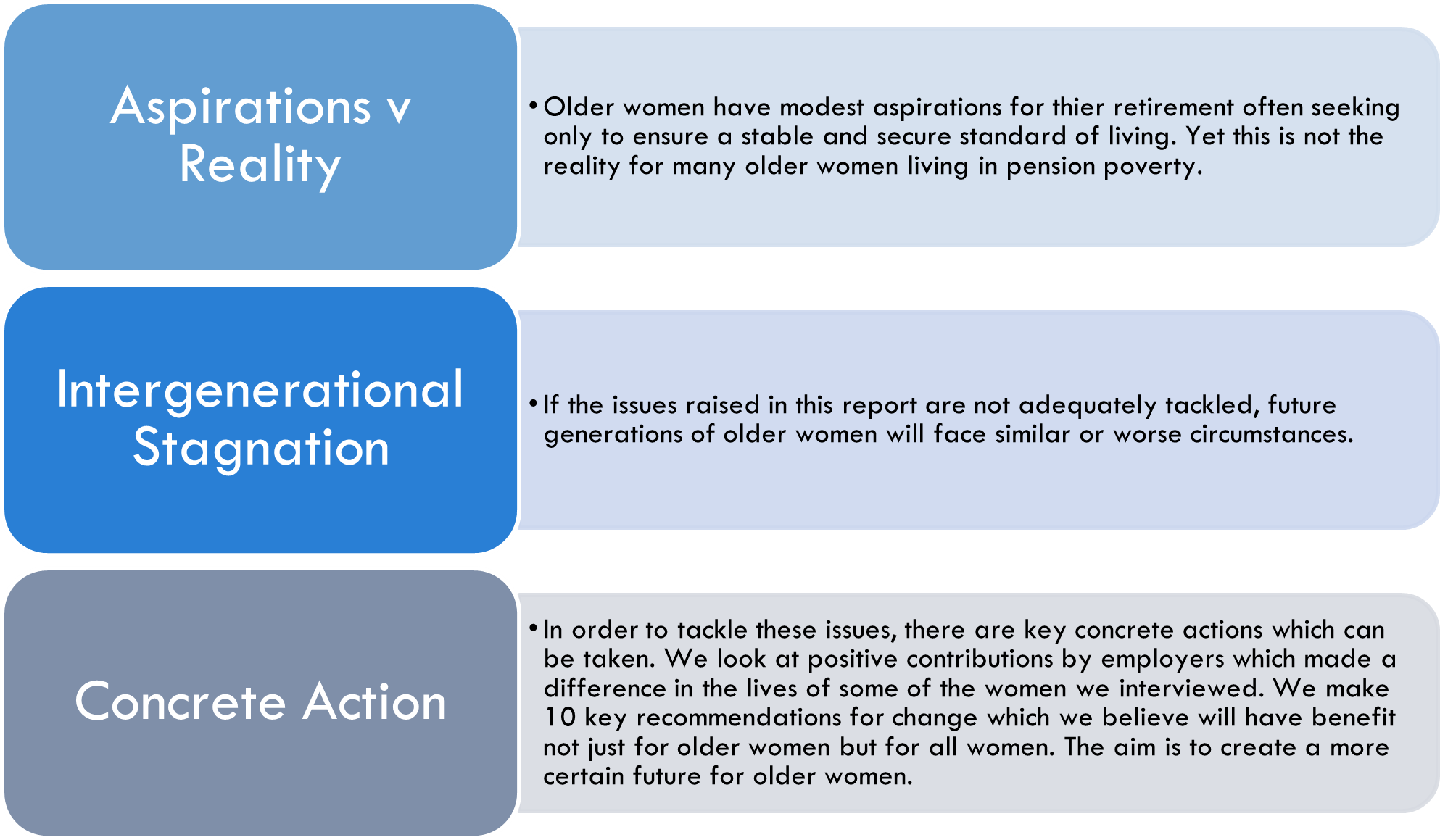
Outcomes
The outcomes of this research will impact change in our communities. Besides the participatory research reports and recommendations, this involves a number of events and public engagement opportunities as well as learning opportunities. The Research Team have developed key recommendations for action within the report and in the form of a Manifesto. We are committed to recommendations which are sustainable, real, and will change women’s lives for the better at a local and national level.
Here are our Key Recommendations with respect to older women and work from our report:
